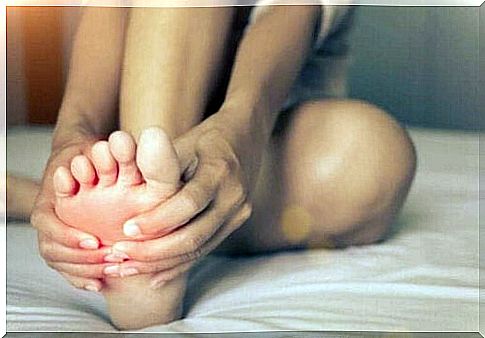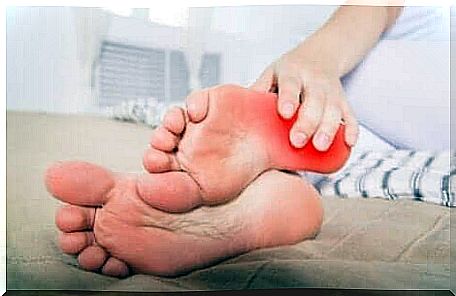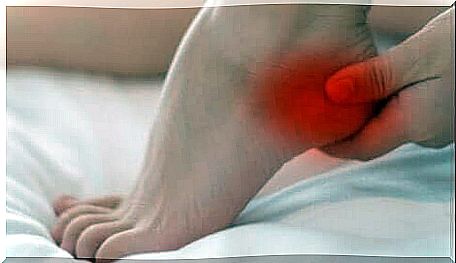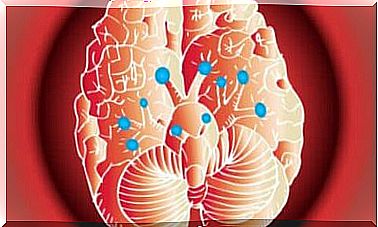Burning Feet: Causes And Symptoms

Burning feet, also known as erythromelalgia, are nocturnal torture for those who suffer from it. Pain that shoots up to the ankles, tingling and a burning sensation that makes you feel like you are walking on glowing coals… This condition can make life difficult for those who have to deal with it every night.
This problem may remind you a little of another disorder that affects people at night and that can affect their quality of life. We are, of course, talking about restless legs. Although it is true that both problems are of neuropathic origin, they have their differences.
We know, for example, that burning feet are more common among women and people with diabetes. Cyclists also tend to suffer more from it than the general population.
Some nuances make this a very unique syndrome. Let’s learn more!

Burning feet: symptoms, causes and treatment
Burning feet can come and go. Sometimes the symptoms are more intense, while they can disappear completely other times. The symptoms vary because there is a wide range of potential causes.
It is important to note that this condition is rarely seen alone. In general, it seems to be associated with other problems such as thyroid problems, joint pain and general weakness, among others. People usually seek help for it, but because of how bothersome the symptoms are and the negative effect it has on sleep.
Symptoms
The most common symptom, of course, is a burning sensation that goes from the soles of the feet to the legs. Many people need to immerse their feet and legs in cold water for relief.
What Causes Burning Feet?
Studies conducted by the Department of Neurology at the University Hospital of Münster provide some interesting insights into this condition. Research shows that burning feet are an autosomal trait. In other words, it is inherited. If someone in your family has it, you are more likely to suffer from it.
- In most cases, the origin of the syndrome is neuropathy or a change in small nerve fibers. As a result of this change, the nervous system sends pain signals to the feet. This is a condition that comes and goes, and as we mentioned above, affects women more than men.
- Another trigger is vitamin B12 deficiency. Not getting enough vitamin B12 can cause problems in the nervous system. The first signs are a tingling sensation and a burning sensation in the arms and legs.
- Metatarsalgia or compression of the metatarsal is another common cause. This is a common problem for cyclists.
- Thyroid problems. Burning feet are also a common symptom for people with hypothyroidism.
- Nutritional absorption deficiency. If a person has intestinal problems or is an alcoholic, they can get burning feet.
- Diabetes. Type 1 and 2 diabetes can affect the body’s peripheral nerves, especially the feet and legs. This is due to an elevated level of glucose in the blood, which alters the transmission of signals between nerves as well as blood vessel resistance.
How is it diagnosed?
As you can see, a number of problems can potentially trigger burning feet. So how do doctors make a correct diagnosis? How do they find out what is causing this condition? Here are some of the most common diagnostic tests:
- Physical examination. The doctor will explore the affected area for swelling, joint problems, allergic reactions, etc.
- Blood tests. They will measure glucose levels as well as look for vitamin B12 deficiency and thyroid problems.
- They can also do tests to see how the nervous system works (ie an electromyogram). It measures the electrical activity of your muscles.

Treatments for burning feet
Medical procedures for burning feet vary depending on the cause. However, some basic recommendations can help in most cases.
Finally, even if you think you know what is causing your condition, it is best to consult your doctor to get a proper diagnosis. Always consult a doctor before trying home treatments.









